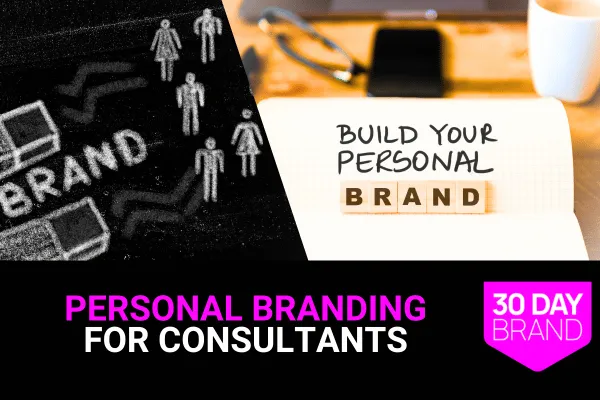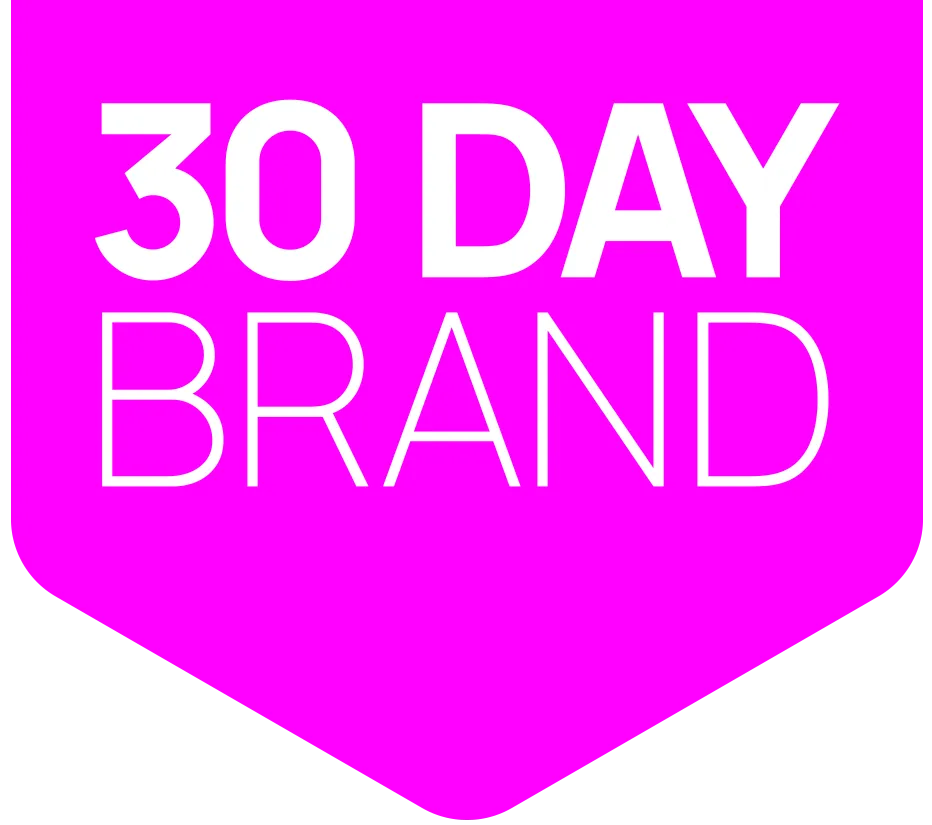
Personal Branding for Consultants: Becoming the Go-To Expert
Personal Branding Overview & Definition
What it is: A system for communicating your expertise and credibility in ways that differentiate you from competitors and attract ideal consulting clients.
Why it matters: 92% of high-growth consultants say personal branding drives business development (Hinge, 2024). Strong brands command authority and trust.
Who needs this: Independent consultants and Founder-led B2B firms seeking to position themselves as obvious experts and secure premium engagements. See B2B Branding for core foundations.
The ROI of Personal Branding
Premium pricing: 25–40% higher fees (Hinge, 2024)
Referrals: 3–5x more referrals than unbranded peers
Sales cycles: 30–50% faster close times
Win rates: 60–80% higher proposal success
Inbound leads: 200–400% more unsolicited inquiries
12 Proven Personal Branding Strategies for Consultants
Item 1: Define Your Expertise Niche
Definition: A three-dimensional framework of functional expertise, industry specialization, and unique approach.
Steps:
Audit skills, credentials, and results
Map industries served and demand signals
Write a positioning statement: “I help [ICP] achieve [outcome] through [unique method]”
Time required: 1–2 weeks
Result: Clear, differentiated market position
See B2B Brand Messaging.
Item 2: Build a Professional Website
Your site is your credibility hub.
Pages: Home, About, Services, Case Studies, Thought Leadership, Contact
Elements: Proof, testimonials, credentials, clear CTAs
Result: Conversion-ready first impression
See B2B Brand Identity Design.
Item 3: Optimize Your LinkedIn Presence
Headline formula: ICP + outcome + expertise
Summary: Hook → problem → solution → proof → CTA
Ongoing: 3–5 posts weekly, 10–20 new connections weekly
See LinkedIn Marketing Strategy.
Item 4: Publish Authority Content
40% foundational: how-tos, insights
35% differentiated: frameworks, case studies
25% thought leadership: research, trends
Result: Consistent visibility, inbound leads (CMI, 2024)
See Content Marketing for Consultants.
Item 5: Secure Speaking Engagements
Pitch conference abstracts quarterly
Use webinars/panels for early visibility
Repurpose talks into posts and clips
Result: Faster trust and premium perception (Edelman, 2024).
Item 6: Gain Media Coverage
Register on HARO, ProfNet, SourceBottle
Build relationships with trade journalists
Prepare a media kit with bio, headshots, topics
Result: Third-party validation and reach.
Item 7: Systematize Referrals
Ask at milestones
Equip clients with intro scripts
Track referral conversion in CRM
Thank and reward referrals
Result: Highest close rates (Forrester, 2024).
Item 8: Collect Social Proof
Request testimonials and case studies
Gather video endorsements
Display proof near CTAs, in proposals, and on LinkedIn
Result: Evidence drives trust and win rates (Gartner, 2023).
Item 9: Develop Lead Magnets
Create assessments, guides, frameworks
Gate high-value tools, keep primers open
Promote via site, email, LinkedIn
Result: List growth and pre-qualified leads
See Lead Generation for Consultants.
Item 10: Launch Email Nurture
5-email welcome flow
Monthly case studies and insights
Segment by role and intent
Result: Email delivers $42 per $1 ROI (DMA, 2024).
Item 11: Strategic Networking & Partnerships
Pre-book meetings at events
Target complementary providers
Co-create webinars and reports
Result: Lower CAC, expanded reach.
Item 12: Continuous Optimization
Run quarterly brand audits
A/B test messaging and CTAs
Refine based on metrics and client feedback
Result: Compounding authority and revenue growth.
Personal Branding Implementation Guide
Step 1: Strategy & Niche
Audit expertise, industries, and approach. Write positioning statement.
Step 2: Online Presence
Optimize LinkedIn and website with clear messaging, proofs, and CTAs.
Step 3: Content Launch
Build quarterly content calendar. Publish weekly. Repurpose across formats.
Step 4: Social Proof
Gather testimonials, cases, and recognition. Publish on key assets.
Step 5: Authority Building
Pitch speaking, secure media, guest post, engage influencers.
Step 6: Systematize & Measure
Automate nurture. Track visibility, engagement, and ROI. Iterate quarterly.
Metrics & Measurement for Personal Branding
Visibility: website visits, social reach, search rankings
Engagement: post interactions, webinar signups, speaking requests
Business impact: inbound leads, referrals, win rate, fee levels
Data: Strong personal brands drive 40% higher fees and 3–5x referrals (Hinge, 2024).
FAQ: Personal Branding for Consultants
Why does personal branding matter?
92% of high-growth consultants say it drives business development (Hinge, 2024).
How fast can results appear?
Early signals in 60–90 days. Strong ROI in 6–12 months (Forrester, 2024).
What’s the first step?
Define your three-dimensional niche and write a positioning statement.
Do I need a personal website?
Yes. It’s the credibility hub for prospects and referrals.
How often should I publish?
3–5 posts weekly on LinkedIn, one long-form article per week (CMI, 2024).
What proof builds trust fastest?
Quantified case studies, client testimonials, media mentions.
Should I gate my content?
Gate high-value tools; keep awareness content open for reach (CMI, 2024).
Can personal branding raise fees?
Yes. Strong personal brands command 25–40% higher fees (Hinge, 2024).
How do I measure impact?
Track inbound leads, referrals, win rate, deal size, and speaking requests.
Where can I learn supporting tactics?
See Marketing for Consultants and B2B Brand Messaging.
Build a Personal Brand That Attracts Premium Clients
Personal branding is not self-promotion. It’s structured communication of your expertise.
Run the free Brand Message Audit to benchmark your current positioning and identify clarity gaps.
👉 Get Your Free Analysis










